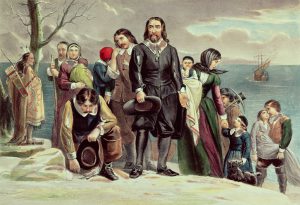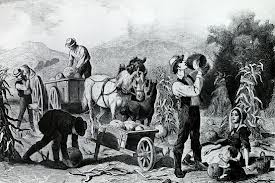The USMCA Impact on US Economy
As part of an investigation into the USMCA impact on US economy, representatives from both the American Iron & Steel Institute (AISI) and the Steel Manufacturers Association (SMA) said the proposed NAFTA replacement would provide benefits to the US steel industry and to the US economy in general.
The deal encourages US manufacturing and regional economic growth by requiring that 75% of auto content be made in North America,” according to a fact sheet from the Office of the US Trade Representative (USTR)…
These new origin rules will increase incentives for the use of North American steel in these products, which will benefit steel producers in the USA by increasing demand for domestically produced steel.” Said Kevin Dempsey, AISI’s general counsel, secretary and senior vice president of public policy.
US Drill Rigs Running Rose Last Week
The number of drill rigs running in the US rose by one last week, to 1082, led by Texas (up by three), while Canadian drilling inched up by one rig, to 197. AMM
Oil Prices Plunged Below the One-Year Low
On Tuesday oil prices plunged below the one-year low reached just last week as a selloff on Wall Street sparked risk aversion across markets and fueled fears that a slowing global economy will crimp crude demand.
US Raw Steel Production Inched Up Last Week
US raw steel production inched up 0.5% last week as mills operated at an ACUR of 82.1%.in the corresponding week last year mills operated at an ACUR of 73.3%. Thus far this year mills have produced prox 84,000,000 tons compared to the prox 79,000,000 tons produced in the like period last year.
Durable Goods Orders Experienced the Largest Drop Since July 2017
Durable goods orders fell 4.4% in October, the largest drop since July 2017. The volatile defense and non-defense aircraft sectors both saw sharp double digit declines. Though defense orders were down on the month, the boost to defense spending from the last federal budget deal will be evident.
THE DESOLATE WILDERNESS
 Here beginneth the chronicle of those memorable circumstances of the year 1620 as recorded by Nathaniel Morton, keeper of the records of Plymouth Colony, based on the account of William Bradford, sometime governor thereof:
Here beginneth the chronicle of those memorable circumstances of the year 1620 as recorded by Nathaniel Morton, keeper of the records of Plymouth Colony, based on the account of William Bradford, sometime governor thereof:
So they left that goodly and pleasant city of Leyden, which had been their resting place for above eleven years, but they knew that they were pilgrims and strangers here below, and looked not much on these things but lifted up their eyes to Heaven, their dearest country, where God hath prepared for them a city (Heb. XI, 16) and therein quieted their spirits.
When they came to Delfs-Haven they found the ship and all things ready, and such of their friends as could not come with them followed after them, and sundry came from Amsterdam to see them shipt, and to take their leaves of them. One night was spent with little sleep with the most, but with friendly entertainment and Christian discourse and other expressions of true Christian love.
The next day they went on board, and their friends with them, where truly doleful was the sight of that sad and mournful parting, to hear what sighs and sobs and prayers did sound amongst them; what tears did gush from every eye, and pithy speeches pierced each other’s heart, that sundry of the Dutch strangers that stood on the Key as spectators could not refrain from tears. But the tide (which stays for no man) calling them away, that were thus loathe to depart, their Reverend Pastor, falling down on his knees, and they all with him, with watery cheeks commended them with the most fervent prayers unto the Lord and His blessing; and then with mutual embraces and many tears they took their leaves of one another, which proved to be the last leave to many of them.
Being now past the vast ocean, and a sea of troubles before them in expectations, they had now no friends to welcome them, no inns to entertain or refresh them, no houses, or much less towns, to repair unto to seek for succor; and for the season it was winter, and they know the winters of the country know them to be sharp and violent, subject to cruel and fierce storms, dangerous to travel to known places, much more to search unknown coasts.
Besides, what could they see but a hideous and desolate wilderness, full of wilde beasts and wilde men? And what multitude of them there were, they knew not: for which way soever they turned their eyes (save upward to Heaven) they could have but little solace or content in respect of any outward object; for summer being ended, all things stand in appearance with a weather beaten face, and the whole country full of woods and thickets, represented a wild and savage hew.
If they looked behind them, there was a mighty ocean which they had passed, and was now as a main bar or gulph to separate them from all the civil parts of the world.
AND THE FAIR LAND
 Anyone whose labors take him into the far reaches of the country, as ours lately have done, is bound to mark how the years have made the land grow fruitful.
Anyone whose labors take him into the far reaches of the country, as ours lately have done, is bound to mark how the years have made the land grow fruitful.
This is indeed a big country, a rich country, in a way no array of figures can measure and so in a way past belief of those who have not seen it. Even those who journey through its Northeastern complex, into the Southern lands, across the central plains and to its Western slopes can only glimpse a measure of
the bounty of America.
And a traveler cannot but be struck on his journey by the thought that this country, one day, can be even greater. America, though many know it not, is one of the underdeveloped countries of the world; what it reaches for exceeds by far what it has grasped.
So the visitor returns thankful for much of what he has seen, and, in spite of everything, an optimist about what his country might be. Yet the visitor, if he is to make an honest report, must also note the air of unease that hangs everywhere.
For the traveler, as travelers have been always, is a much questioned as questioning. And for all the abundance he sees, he finds the questions put to him ask where men may repair for succor from the troubles that beset them.
His countrymen cannot forget the savage face of war. Too often they have been asked to fight in strange and distant places, for no clear purpose they could see and for no accomplishment they can measure. Their spirits are not quieted by the thought that the good and plenty bounty that surrounds them can be destroyed in an instant by a single bomb. Yet they find no escape, for their survival and comfort now depend on unpredictable strangers in far-off corners of the globe.
How they turn from melancholy when at home they see young arrayed against old, black against white, neighbor against neighbor, so that they stand in peril of social discord. Or not despair when they see that the cities and countryside are in need of repair, yet find themselves threatened by scarcities of the resources that sustain their way of life. Or when, in the face of these challenges, they turn for leadership to men in high places-only to find those men as frail as any others.
So sometimes the traveler is asked whence will come their succor. What is to preserve their abundance, or even their civility? How can they pass on to their children a nation as strong and free as the one they inherited from their forefathers? How is their country to endure these cruel storms that beset it from without and from within?
Of course the stranger cannot quiet their spirits. For it is true that everywhere men turn their eyes today much of the world has a truly wild and savage hue. No man, if he be truthful, can say that the specter of war is banished. Nor can he say that when men or communities are put upon their own resources they are sure of solace; nor be sure that men of diverse kinds and diverse views can live peaceably together in a time of troubles.
But we can all remind ourselves that the richness of this country was not born in the resources of the earth, though they be plentiful, but in the men that took its measure. For that reminder is everywhere-in the cities, towns, farms, roads, factories, homes, hospitals, schools that spread everywhere over that wilderness.
We can remind ourselves that for all our social discord we yet remain the longest enduring society of free men governing themselves without benefit of kings or dictators. Being so, we are the marvel and the mystery of the world, for that enduring liberty is no less a blessing than the abundance of the earth.
And we might remind ourselves also, that if those men setting out to Delfs-Haven had been daunted by the troubles they saw around them, then we could not this autumn be thankful for a fair land.
The editorials above have appeared annually in the Wall Street Journal since 1961
Happy Thanksgiving to all….
Infrastructure X (Keystone & Dakota pipelines) Regulation Reform XX 1 in 2 out
Individual Tax Reform XX Entitlement Reform
Business Tax Reform XX Education Reform X
Healthcare Reform Veterans Administration Reform X
Rebuild our Military X Trade Reform X
Secure our Borders (The Wall) XX Lead the world from the front XX
Help for the poor XX Drain the swamp X as we speak
Peace through unmatchable strength Support Israel X
Destroy ISIS XX Extreme Vetting XX
Conservative Supreme Court nominees XX American Jobs XX
I will track these campaign promises and will check them off as each is accomplished adding those I have missed as they become apparent. This is quite an agenda and will be difficult to achieve all in one term, but I believe the American people are behind him and know these things need to be done. Now, if he can get our legislators to support him instead of fighting him….
“MAKE AMERICA GREAT AGAIN”
Have a great weekend…. God bless America!
Buy American made products whenever you can, it’s good for you, good for your friends and neighbors and good for our country.
If you are hiring…try to hire a veteran…. they are loyal, disciplined, hardworking…and they deserve our support.
By the way, if you wish to comment on my rants or offer any other insights you may have, you are encouraged to email me.
TEDDY ROOSEVELT ON IMMIGRANTS IN AMERICA…1907
In the first place, we should insist that if the immigrant who comes here in good faith becomes an American and assimilates himself to us, he shall be treated on an exact equality with everyone else for it is an outrage to discriminate against any such man because of creed, or birthplace, or origin. But this is predicated upon the person’s becoming in every facet an American and nothing but an American. There can be no divided allegiance here. Any man who says he is an American, but something else also, isn’t an American at all. We have room for but one flag, the American flag…We have room for but one language here and that is the English language…and we have room for but one sole loyalty and that is a loyalty to the American people.”


